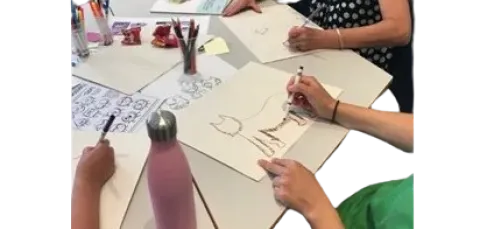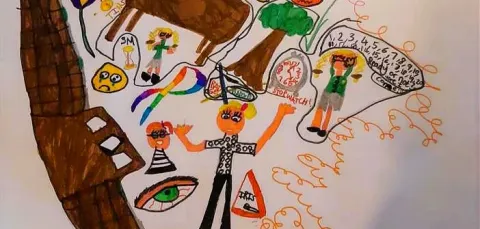-
 Co-constructing the evidence baseWe focus on participatory approaches to research that respect the diverse knowledges needed for informing and co-creating the autism research evidence base.
Co-constructing the evidence baseWe focus on participatory approaches to research that respect the diverse knowledges needed for informing and co-creating the autism research evidence base.
This includes autistic people, children and their families and the professionals who support them.
We work together to identify and address research questions that come from practice. -
 Creative and participatory methods for voiceWe embed creative and participatory methods in our projects to enable a range of voices to be heard.
Creative and participatory methods for voiceWe embed creative and participatory methods in our projects to enable a range of voices to be heard.
Examples include ‘I am’ Digital Stories, Photovoice, Storyboards, and body mapping.
We have developed creative resources with autistic students including the ‘School Daze’ comic and ‘Fizzacc’ materials to support awareness and acceptance. -
 School belonging and societal inclusionWe explore autistic people’s experiences of inclusion in school and other services, with a focus on transitions and trajectories.
School belonging and societal inclusionWe explore autistic people’s experiences of inclusion in school and other services, with a focus on transitions and trajectories.
Examples include the use of intense interests in teaching and learning, exploring shared decision-making within schools and a key-working service, home-education, and patterns and experiences of school non-attendance. -
 Autistic girls and intersectional identitiesWe are exploring the lived experiences of autistic people in different settings and services.
Autistic girls and intersectional identitiesWe are exploring the lived experiences of autistic people in different settings and services.
Examples include the school experiences of late diagnosed Black and Black mixed-heritage women and girls, developing culturally responsive Educational Psychology practice, and exploring provision for looked-after autistic children.
Autism Community Research Network @ Southampton (ACoRNS)
Research themes
Our research is grouped into four main themes:



